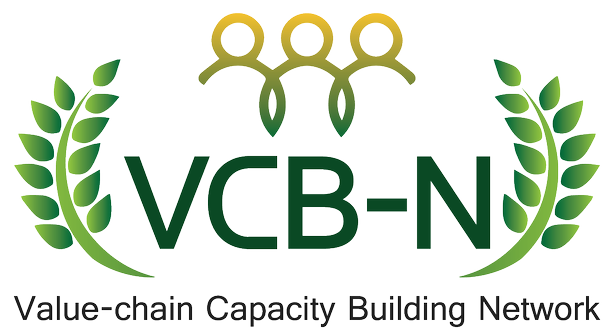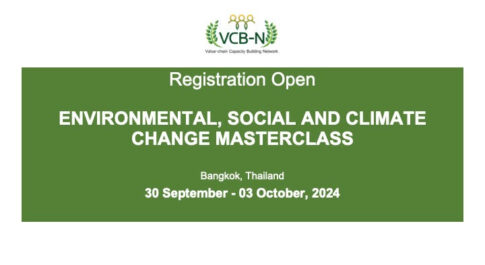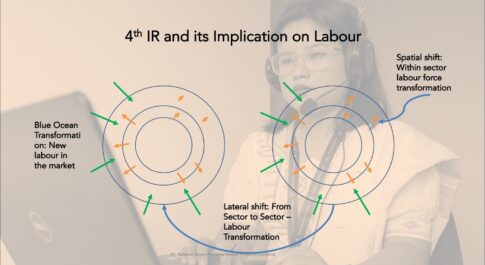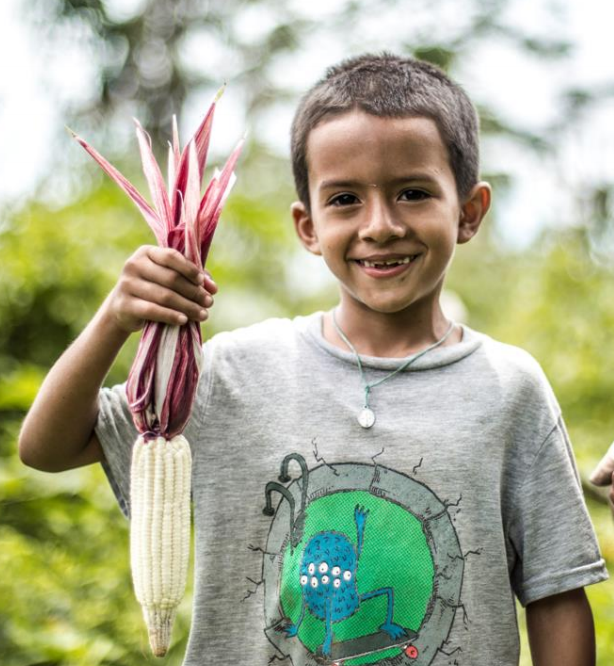
Good practice
Promoting Producer-Public-Private Practices through Knowledge Centers (KC)
The following good practice is conducted by Mr. Tun Win, the Director of Project Fostering Agricultural Revitalization in Myanmar (FARM). The case study was selected and presented in Mekong Knowledge and Learning Fair (IFAD) by representatives from Myanmar.
Background
In Myanmar, extension services focus on crop productivity, with little attention to commodity development, value chain upgrading, market access and linkage among stakeholders for long time. Therefore, farmers grow the cereal crops and some local vegetable crops by conventional method and sell their products in local market with low price. In addition, there is little diversification of income generation in the rural community. As a result, the rural poor households’ earning is not as much as high compared with the neighboring countries. In fact, to increase the incomes of smallholder and landless households, the Fostering Agricultural Revitalization in Myanmar (FARM) project with the financial aid of IFAD introduces provision of a range of services and knowledge resources for smallholders and the landless.
The FARM project area consists of: (i) the command areas of six irrigation schemes in Nay Pyi Taw Union Territory amounting to 87,183 acres within the area of five townships; and, (ii) an additional 25,000 acres of rainfed lowlands and uplands located around these townships. The project therefore covers an aggregate area of 112,183 acres (45,400 hectares) which constitutes 45% of the cultivated land in the five townships. Project area has a rural poverty rate of 31.6% and a rural food poverty rate of 6.5% compared with the national average of respectively, 29.2% and 5.6% respectively (IHLCA 2010). During project implementation, knowledge centers (KCs) were established which have been sharing the promotion of partnerships, particularly Producer Public Private (PPP) practices. Hence, the project creates a better business environment between farmers and private agency related with vegetable production aiming to market the products from local to export.

Innovations / Good Practices
The project focuses on promotion of market-oriented approach. Project sets up KCs to provide services which include the following: introduction of alternative crops, access to market, market information and establishment of contractual linkage among value chain stakeholders for rural farmers and fostering links with key actors (suppliers, traders, processor). Farmers are also assisted in preparation of their business plan, loan applications and financial projections and access to financial resources.
Project KCs are low cost facilities. KCs were launched on the basis of a PPP arrangement. KC managers link farmers with the Myanmar Agri Food (MAF) Company for contract farming, particularly the farmers growing Okra, Taro, and Spinach. MAF Company cooperates with farmers and supports them with technical package starting from planting stage to exporting frozen food to Japan.
Impact
At present, 2000 households are reached by the KCs in the project area. Through the PPP practice farm families tapped family members for contract farming and around 5% of the households have been hired by MAF as factory worker. Before, small scale farmers in the project area grew local vegetable crop traditionally and sold their products only in the local market with low price. With the PPP, farmers could now sell directly their products to a factory with higher price.
Farmers involved in contract farming experienced both higher revenue and profit because of increased yield of their crops and expansion of varieties, to include the more niche specific variety (e.g. Spinach). Company provided technical assistance to farmers. New varieties are introduced like Spinach, Taro, Okra which were not grown in the project area before project implementation. Now, these new crops and varieties bring additional income, about 30% of total investment.
The increase in about 10% of farmer’s yield and expansion of crops were due to the cooperation between KCs and the private company. Farmers are trained, linked to value chain actors and credit institutions. The farmers also demonstrated ability to diversify their sources of income to incorporate other crops or livestock. This is attributed to both the increase in technical capacity and efficiency of farmers and an increased understanding of local and export markets. By conducting this PPP practices, farmers have improved their lives and farming practices. We also foresee that this will impact at the policy level in the near future.
Facilitating Factors / Challenges
Facilitating Factors:
- Rural households in the project area, esp. small scale farming household for Okra, Taro, and Spinach. Farmers in contract farming sharing their experiences with other farming households.
- KC Managers linking farmers and the company
- Myanmar Agri Food (MAF) Company linking with KC managers, government and farmers.
- New Farmland Law which gives right to farmers to choose the crops they like.
When we implement PPP practices, we have been facing some challenges such as rejected vegetables being collected from farmers’ fields that were due to the unseasonable rain, climate change, etc.
Lessons Learned
One of the most important elements from this PPP, particularly for contract farming, that can be applied to smallholder farmers in Myanmar is the clear intent and agreements between the company and the farmers. Both companies and farmers made income. Contracts provided mutual benefit to the company and farmers. The use of niche crops for a predetermined market proved a means of increasing the incomes of farmers who would have less per acre in local or traditional crops. The company was able to introduce high cash crops such as Taro, Okra and Spinach that was priced for an international market not dependent on the local agricultural market for pricing or demand. Therefore, consideration of more possible high value crops to be grown with smallholder farmers could be particularly beneficial given poor rural size and climactic range. Practice of contract farming including the provision of technical package could augment possible shortcomings in the existing extension services available in Myanmar.
Recommendations
Based on this experience, it is highly recommended that the government of Myanmar promotes the PPP through the establishment of knowledge centers. The possible use of contract farming with smallholder farmers is a tool to capitalize on the opportunity to improve the economic growth of Myanmar’s as well as to sustainably improve the livelihood, capacity and outputs of farmers. It is important to highlight that contract farming is not a blanket tool and the positive circumstances of successful cases must be considered within Myanmar’s agricultural context.
You may want to read








